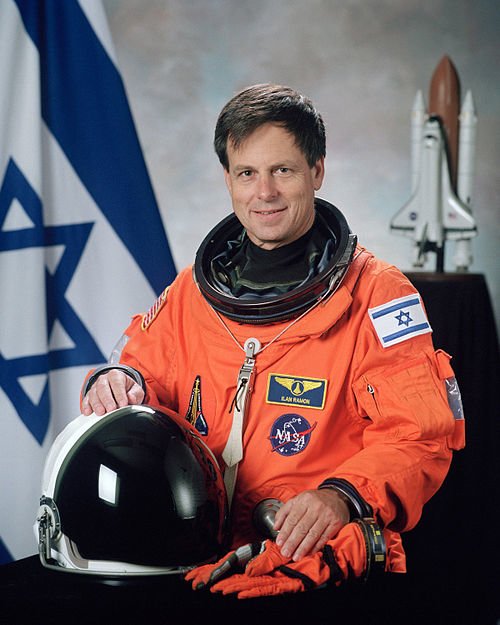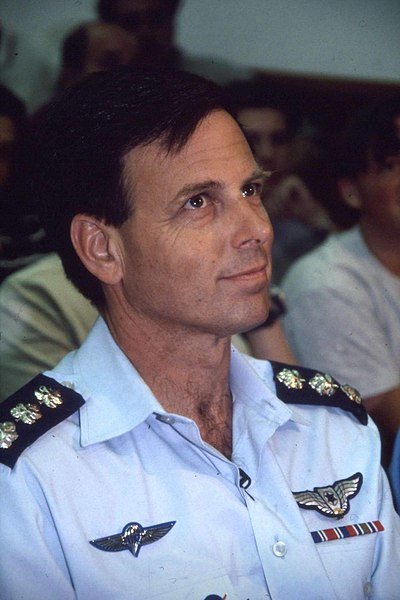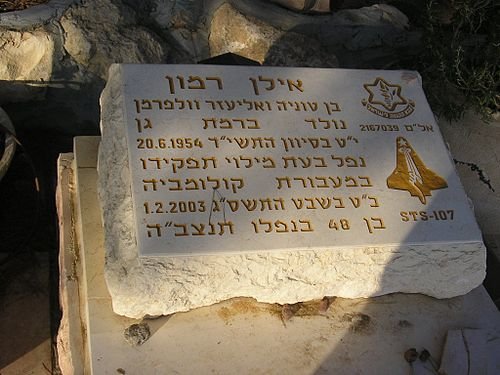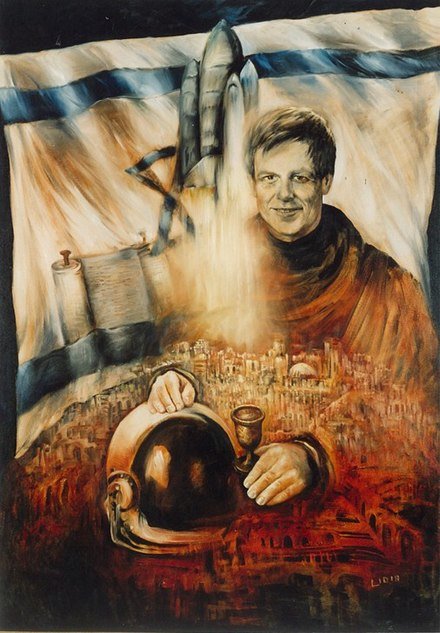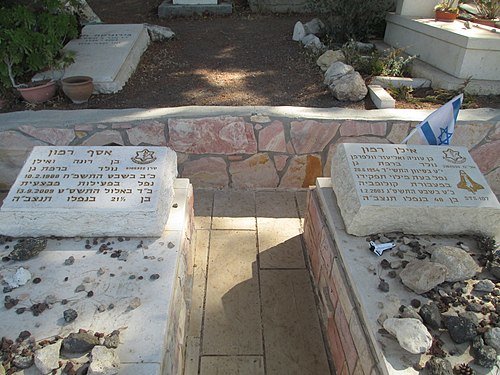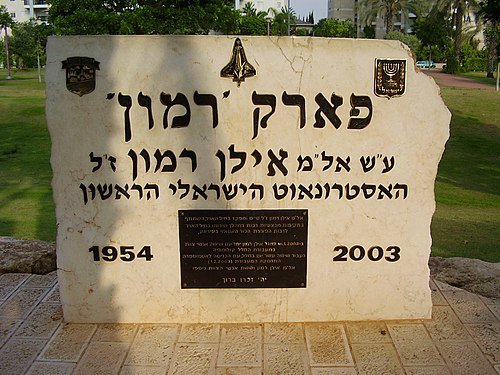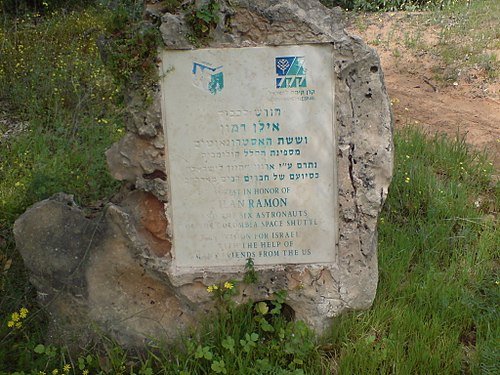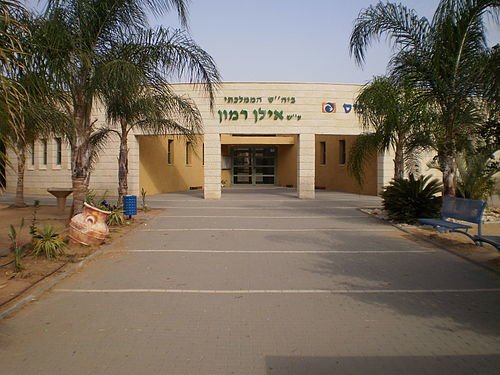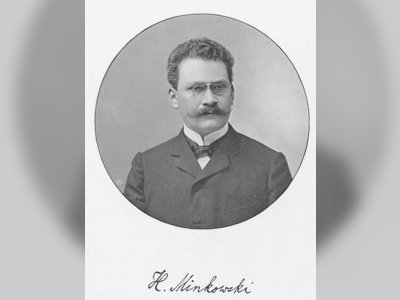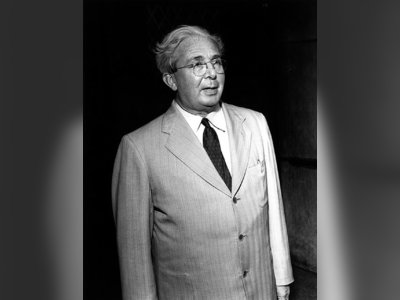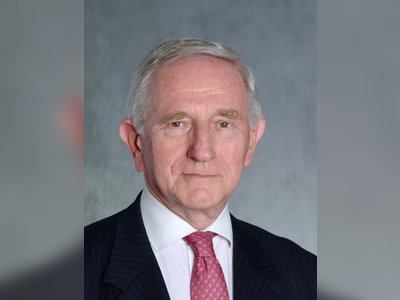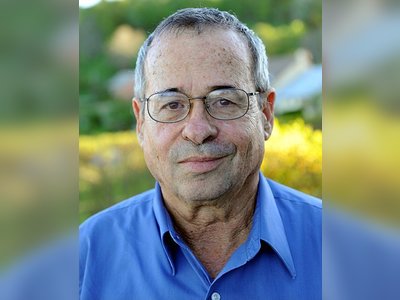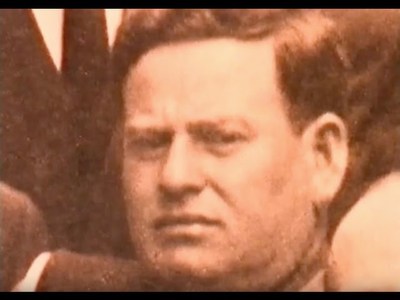מורשת גדולי האומה
בזכותם קיים
beta
Ilam Ramon: Israel's First Astronaut
Ilan Ramon (June 20, 1954 - February 1, 2003) was Israel's first astronaut and a payload specialist on the space shuttle Columbia mission STS-107. On February 1, 2003, tragedy struck as the Columbia disintegrated upon reentry into Earth's atmosphere, claiming the lives of Ramon and his fellow crew members. Prior to his space mission, Ramon served as a fighter pilot in the Israeli Air Force, eventually achieving the rank of Colonel.
Early Life and Career
Ilan Ramon was born as Ilan Wolferman in Ramat Gan, Israel, to parents Tonia (1927–2003) and Eliezer Wolferman (1923–2006). His father's family had fled Nazi Germany in 1935, while his mother and grandmother arrived from Poland as Holocaust survivors in 1949.
Ramon attended the Ramat Chen Elementary School, later renamed in his honor after his tragic death. In 1962, his family relocated to Be'er Sheva, where he attended the Be'er High School. He completed his high school education in 1972. Upon his conscription into the Israel Defense Forces (IDF), he changed his surname to Ramon, inspired by the Ramon Crater in the Negev Desert.
Service in the Israeli Air Force
In August 1972, Ramon joined the Israeli Air Force and began pilot training but had to leave the program eight months later due to a hand injury. During the Yom Kippur War, he served in an electronic warfare unit at the Umm Hoshivah base in the Sinai. He later resumed his pilot training but, due to a technical failure during a training flight, was forced to eject from the aircraft along with his instructor, narrowly escaping injury. Ramon completed his fighter pilot training in 1974, earning the rank of Outstanding Cadet.
He served as a combat pilot, first as a Skyhawk pilot in the 102 Squadron and later as an Eagle pilot in the 253 Squadron at the Etzion Airbase in the Sinai. In 1980, he was among the first Israeli pilots sent to the United States to learn to fly the F-16 and was part of the acceptance team for these aircraft in the Israeli Air Force.
In June 1981, Ramon participated in the operation to destroy Iraq's Osirak nuclear reactor. He was one of the pilots involved in planning and executing the attack, taking the last position in the formation, which was considered the most dangerous as it allowed the enemy's air defenses to react. After the mission, he faced criticism for not responding to the mission commander's calls during the attack. However, he later explained that he was momentarily stunned by the intense anti-aircraft fire but quickly regained his composure.
Later that year, he transferred to the 117 Squadron, flying F-16s, and eventually became the squadron commander. In 1992, he was appointed as the head of the Aircraft Branch in the IDF Air Division, and in 1994, he was promoted to the rank of Colonel and served as the head of the Air Force's Department of Operational Requirement, holding this position until 1997.
During his military career, Ramon accumulated more than 3,000 flight hours on various aircraft, including the Skyhawk, Eagle, and Phantom, and over 1,000 flight hours on different models of the F-16.
Ramon was selected to be Israel's first astronaut by the Israeli Air Force, following an agreement signed between Israel and the United States in 1995 to include an Israeli astronaut in a NASA space mission. The Israeli Space Agency requested the Air Force to choose a candidate, and in 1997, Ramon was selected for this historic mission. His journey to space was postponed several times due to various technical and scheduling issues.
Space Mission: STS-107
In the STS-107 mission aboard the space shuttle Columbia, Ramon participated in several experiments, including one that he helped design at Tel Aviv University to study how desert dust particles affect the Earth's climate. He also carried various objects representing Israeli society, including:
* A small Torah scroll that had survived the Holocaust.
* A drawing titled "Moon Landscape," created by 16-year-old Petr Ginz, who died at Auschwitz.
* A microfiche copy of the Bible.
* A mezuzah, a traditional Jewish symbol, and a Kiddush cup.
Before his journey to space, Ramon had contemplated how to observe the Sabbath in space. Rabbis advised him that he should count six time zones, each lasting 24 hours, and observe the Sabbath on the seventh zone, similar to the practice of Jewish soldiers stationed in areas with extended daylight.
Tragic Loss and Legacy
On January 16, 2003, the space shuttle Columbia launched from Kennedy Space Center on a 16-day mission. Tragically, on February 1, 2003, the Columbia disintegrated upon reentry into Earth's atmosphere due to damage sustained during launch when a piece of foam insulation struck the left wing. This catastrophic event claimed the lives of Ilan Ramon and the six other crew members.
Ramon's remains were found on February 5, 2003, and were brought back to Israel. A state funeral and memorial service were held in his honor at the Israeli Air Force's base near Ben Gurion Airport, attended by his family, the President of Israel, and the Prime Minister, along with NASA representatives. He was buried on February 11, 2003, in Nahalal Cemetery with full military honors.
In recognition of his sacrifice and contributions, Ramon was posthumously awarded the Israel Defense Prize and the Congressional Space Medal of Honor by NASA.
A diary kept by Ramon during his time in space was discovered weeks after the tragedy. Eight pages from the diary survived the explosion, chronicling his experiences from liftoff to his sixth day in space. One of the recovered pages contained the Kiddush, the traditional Jewish blessing over wine and bread.
In May 2010, during Space Shuttle Atlantis mission STS-132, a small medallion with Ramon's emblem was flown to the International Space Station and later returned to Earth, paying tribute to his memory and mission.
In August 2020, an Ilan, Rona, and Asaf Ramon Memorial Site was inaugurated in Ramat Gan National Park to honor the legacy of Ilan Ramon and his family.
Family Legacy
Ilan Ramon's family faced additional tragedy when his eldest son, Asaf Ramon, a talented pilot, lost his life in a training accident in 2009 while flying an F-16. Asaf Ramon was posthumously promoted to the rank of captain and was laid to rest alongside his father.
Ilan Ramon's widow, Rona, who dedicated her life to preserving his memory, passed away in December 2018 after battling cancer.
His surviving children, including Tal Ramon, who became a musician, continue to uphold their father's legacy and the values he represented in Israeli society.
- אילן רמוןhe.wikipedia.org
